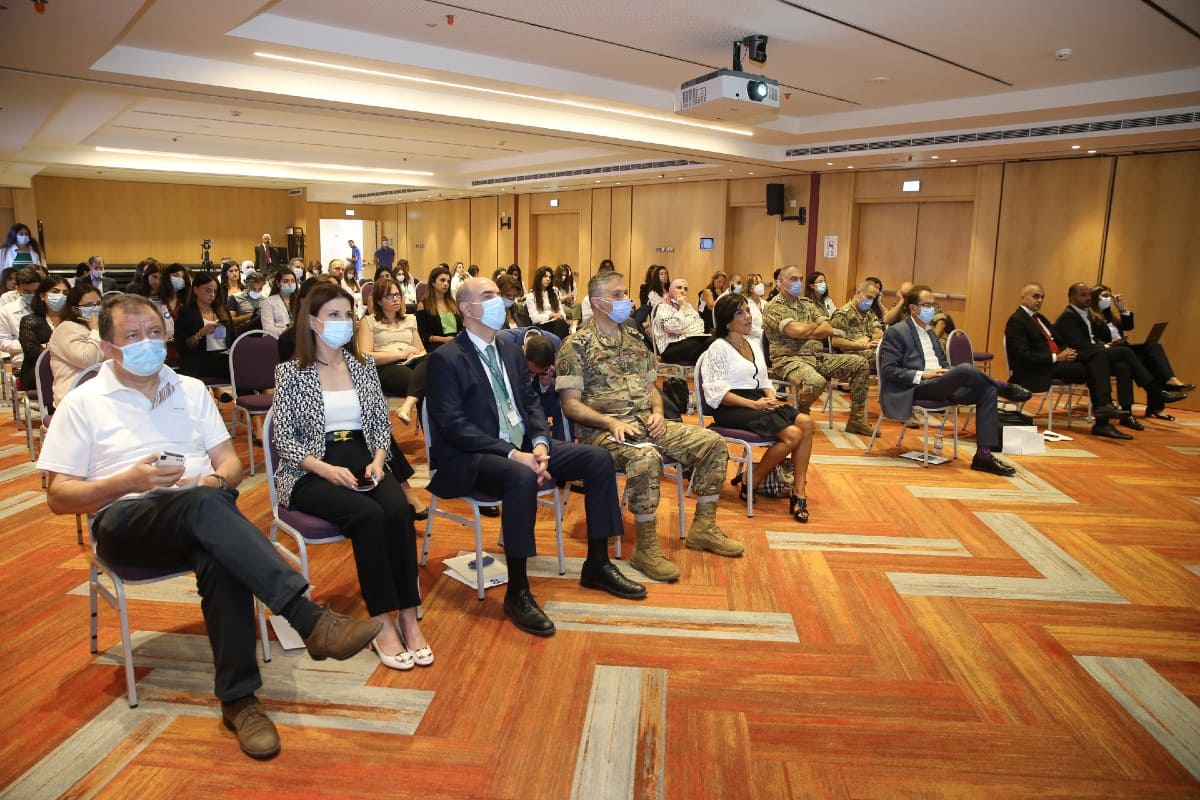How Can Lebanon’s Healthcare Sector Survive the Crisis?
A School of Pharmacy seminar sheds light on the action points needed to sustain the equitable allocation of healthcare services and the affordability of medicines.
Even before the onset of the economic and financial crisis, Lebanon’s healthcare system suffered from a lack of a centralized database, with sharp inequities between private and public institutions. The ongoing economic collapse has pushed an already frail system to its limits, from the shortage of medicine to the brain drain of healthcare providers.
To help pave the way for a national action plan that addresses the current challenges, the LAU School of Pharmacy hosted a seminar that brought together international experts, academics and local stakeholders from both public and private institutions.
Titled Managing Lebanon Healthcare Through Economic Hardship and Beyond, the event held at the LAU Medical Center-Rizk Hospital on October 11 was organized and emceed by Clinical Associate Professor and Chair of Pharmacy Practice Soumana Nasser.
Vice President of Novartis Gene Therapies Omar Dabbous laid out the steps needed to develop a process that meets short- and long-term health needs. As a start, he recommended triaging the role of primary care physicians, nurses, pharmacists and medical students to optimize the process for the prescription of tests, drugs and protocols in view of the economic crisis – one example is minimizing hospital stays where appropriate.
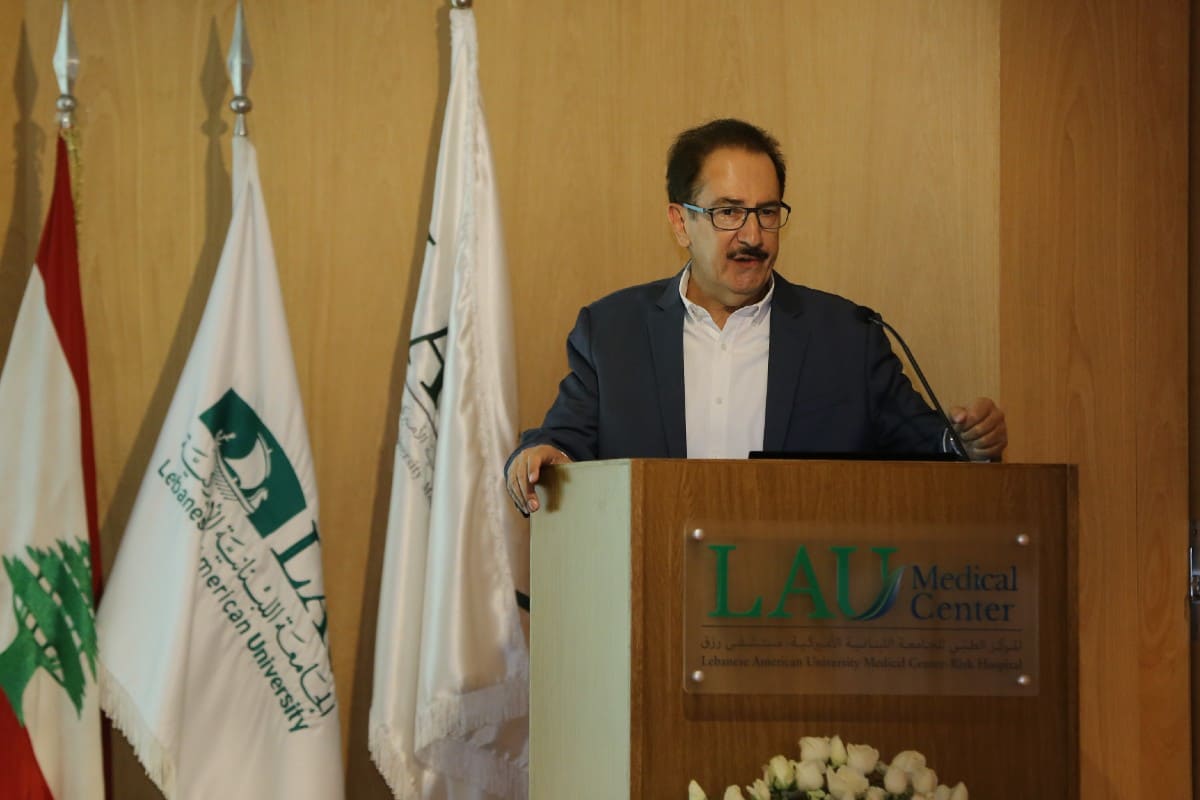
In the longer run, Dr. Dabbous proposed building central and regional labs, encouraging the use of generic medicines, and promoting prevention measures through mandatory healthcare education on vaccines, chronic conditions and the importance of screening, among others.
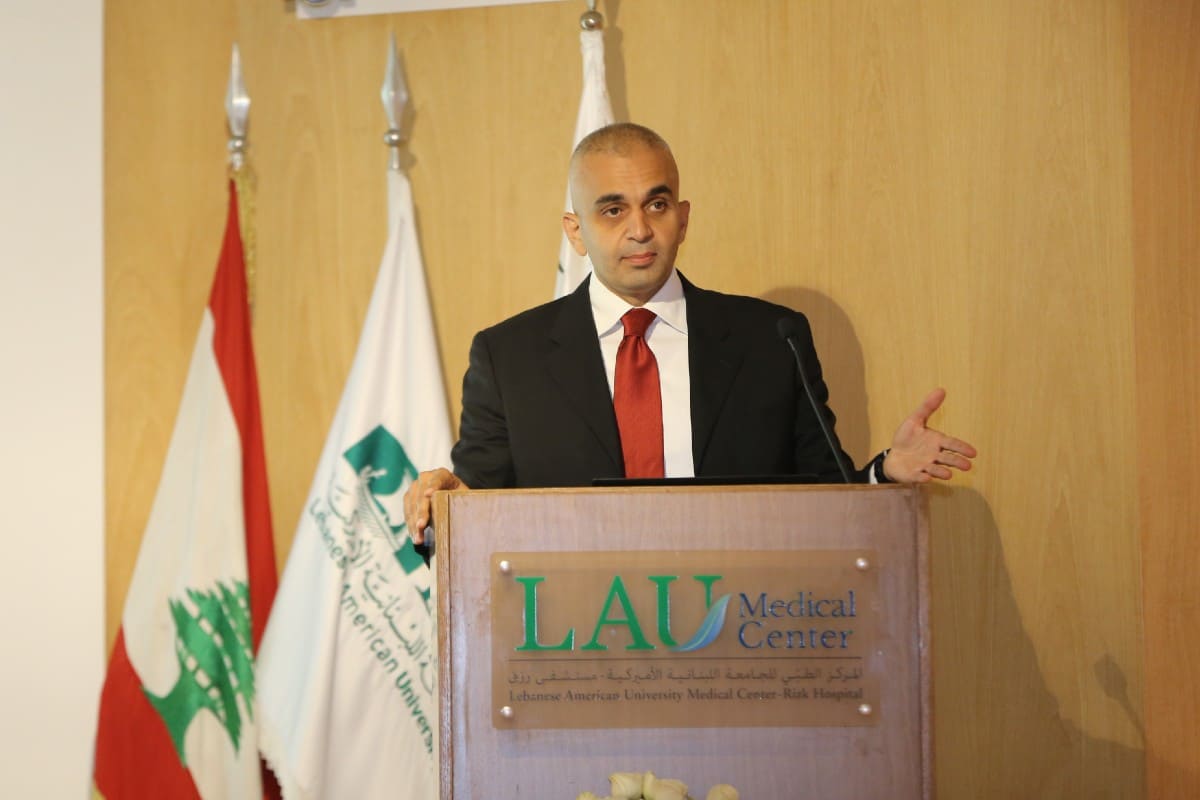
Reforming the healthcare system, however, is not without its challenges. Main obstacles, said Lieutenant Colonel Habib Abdo, head of Central Military Laboratories, were the mistrust in the system due to the decentralization of the sector, the lack of coordination between multiple providers and the reluctance to pool funds. He argued for an urgent formation of a comprehensive system that unifies funds, digitizes the sector and cuts through the prevailing bureaucracy.
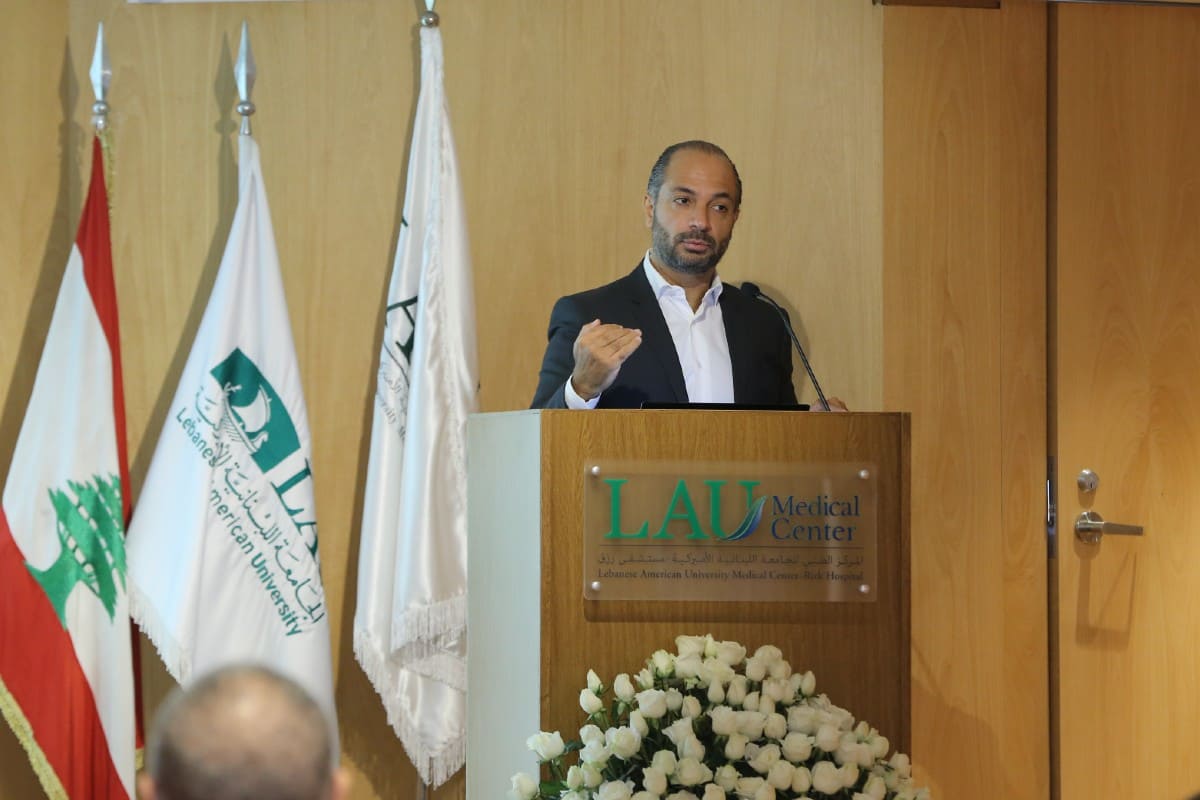
To that end, Director of the Global Health Institute Shadi Saleh called for decentralizing healthcare delivery and shed light on the critical role of international organizations in supporting access to health services. “While this role is necessary during the transition phase to an enhanced health system,” noted Dr. Saleh, it “should not replace that of the Lebanese government.”
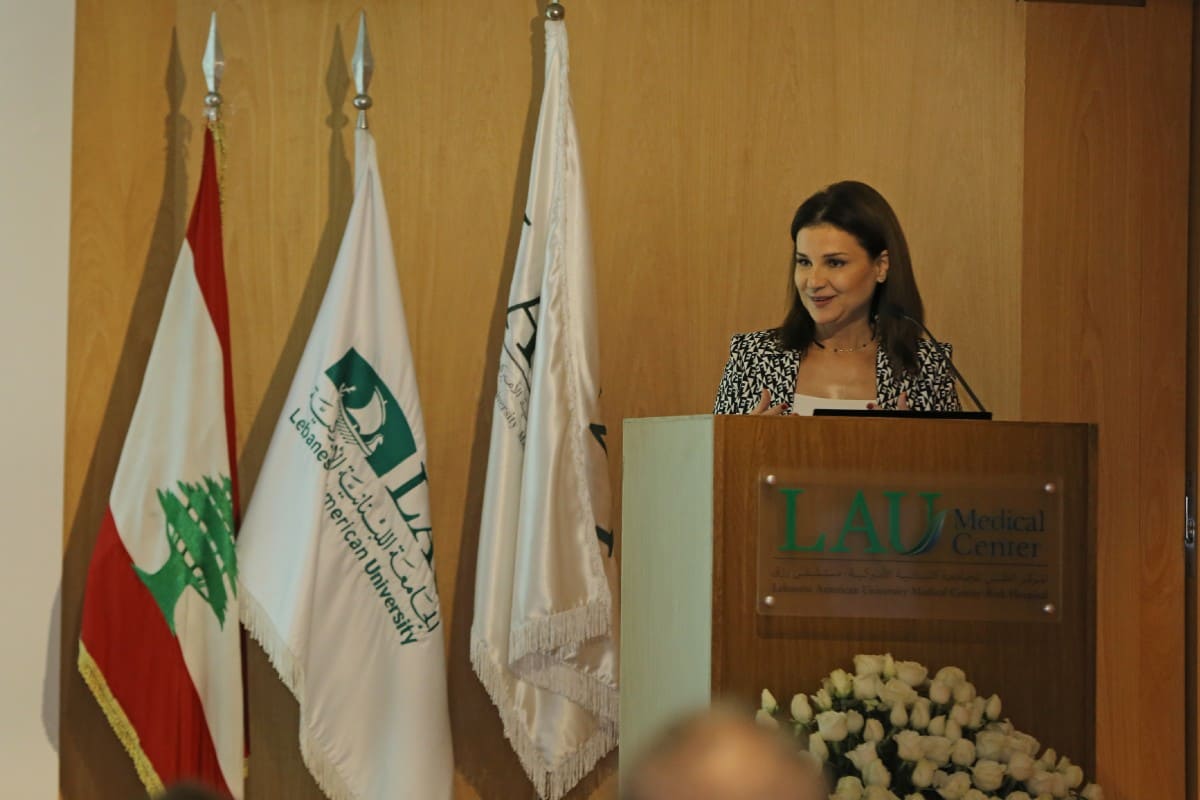
Dean of the LAU Gilbert and Rose-Marie Chagoury School of Medicine Sola Aoun Bahous gave an overview of how the school and LAU’s medical centers have worked toward minimizing attrition rates among their physicians, educators and healthcare providers.
“We were fighting back on all fronts – the global pandemic and the ongoing economic crisis were the main uncertainties that we identified and factored into our action plan because these two had come to define the mindset of the very people we were strategizing to retain,” explained Dr. Bahous.
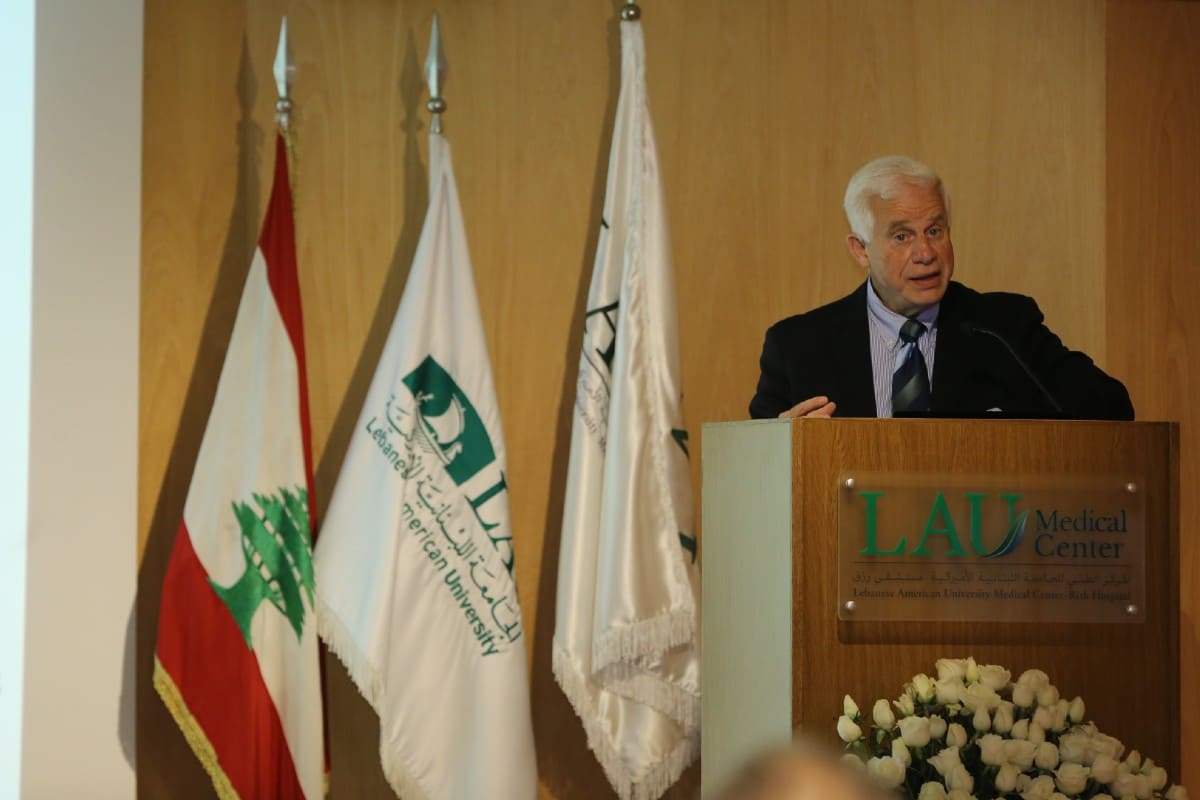
Feeding into the conversation, Dean of the School of Pharmacy Naser Alsharif provided insights about the need to continue refining ethical frameworks for triaging and allocating resources. He identified the four ethical principles in the allocation of resources: patient-centered beneficence, autonomy, justice and nonmaleficence.
“The pharmaceutical industry has a social responsibility to enhance the availability and accessibility of drugs, as well as to ensure market segmentation and decrease their cost at times of crisis,” he said.
The seminar included a panel discussion that delved into private and public sector partnerships, the limitations faced by the Lebanese Ministry of Public Health and its efforts in subsidizing the cost of drugs, as well as the role of insurance companies and drug importers.
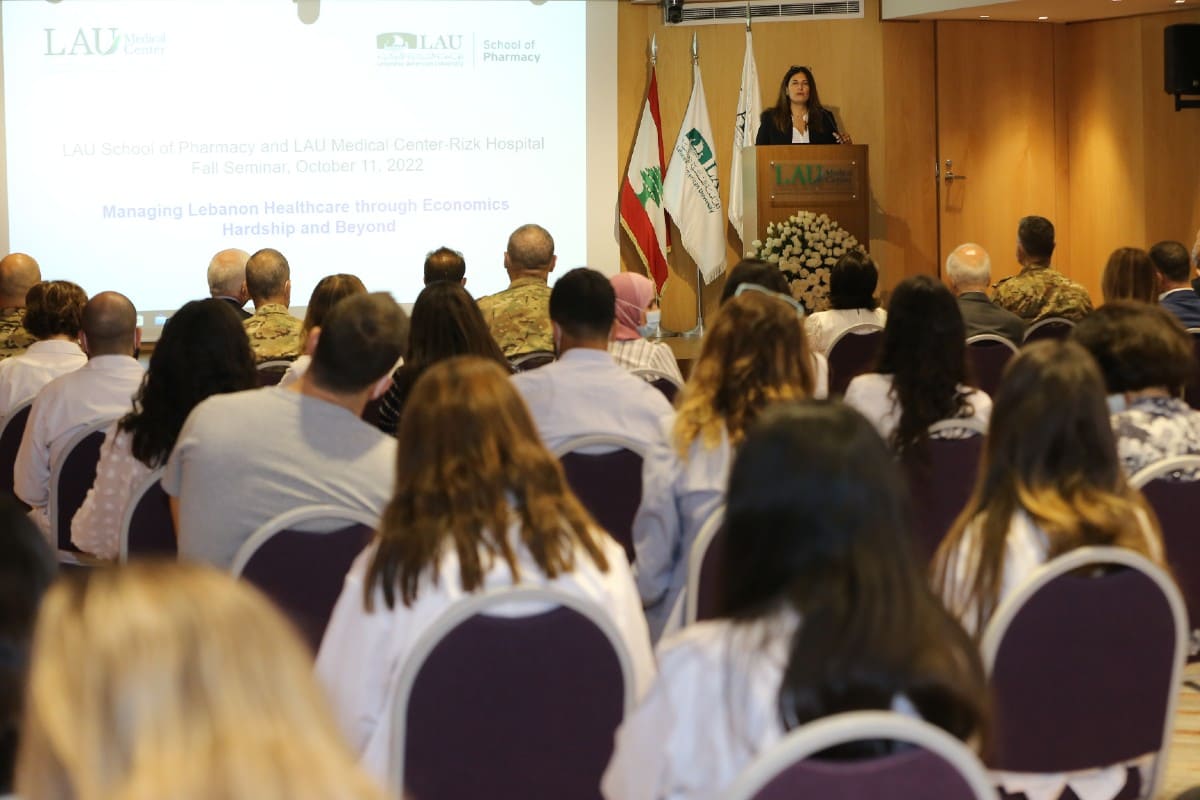
For Dr. Soumana Nasser, the seminar was a promising step toward bolstering collaborations between the private and public sectors, to better serve the Lebanese healthcare system.
Ultimately, she said, “we all have one aim: to make treatment available and affordable for all – and for that to happen, we need to calm the panic mode and adopt a positive attitude.”
